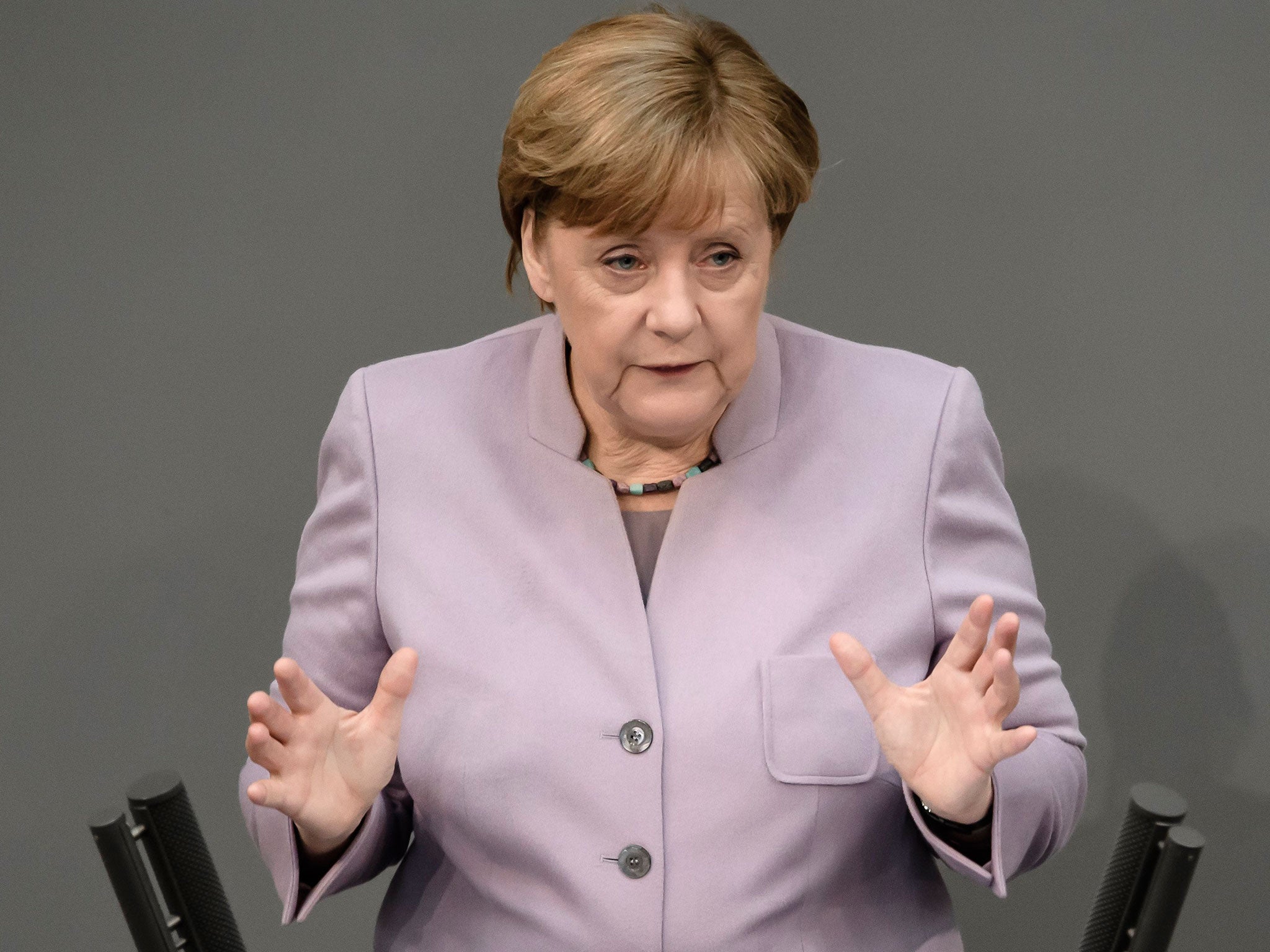Angela Merkel says Britain under 'illusion' it can keep EU benefits after Brexit
German Chancellor says UK 'cannot and will not' have same rights as EU members

Your support helps us to tell the story
From reproductive rights to climate change to Big Tech, The Independent is on the ground when the story is developing. Whether it's investigating the financials of Elon Musk's pro-Trump PAC or producing our latest documentary, 'The A Word', which shines a light on the American women fighting for reproductive rights, we know how important it is to parse out the facts from the messaging.
At such a critical moment in US history, we need reporters on the ground. Your donation allows us to keep sending journalists to speak to both sides of the story.
The Independent is trusted by Americans across the entire political spectrum. And unlike many other quality news outlets, we choose not to lock Americans out of our reporting and analysis with paywalls. We believe quality journalism should be available to everyone, paid for by those who can afford it.
Your support makes all the difference.Angela Merkel has warned British politicians to rid themselves of “illusions” over the UK’s status after Brexit, as she takes a hard line ahead of negotiations.
The German Chancellor told cheering Bundestag members Britain would become a “third-party state” after its departure and could not expect to enjoy the same rights as remaining nations.
“A third-party state, and that's what Britain will be, cannot and will not have at its disposal the same rights, or be in a better position than members of the European Union,” Ms Merkel said, to loud applause.
“I have to say this clearly here because I get the feeling that some people in Britain continue to work under illusions, and that is a waste of time.”
Future trade deals, the possibility of tariffs and questions over visas and free movements are among the key issues for both sides of the negotiating table.
Speaking ahead of a Brexit summit to be held over the weekend, Ms Merkel said that discussions of the UK’s financial obligations to the EU must be addressed early.
As well as the huge cost of incorporating Brussels laws, Britain must also may a “divorce bill” expected to cost between €20bn and €60bn.
Saying negotiations would only properly start after June’s unexpected general election, Ms Merkel said the 27 remaining EU members agreed that the financial settlement must be set as a priority.
“Without progress on the many open questions of the exit, including the financial questions, it makes no sense to have parallel negotiations over the future relationship,” she added.
“We need to know how Britain sees its future relations with us.”
Theresa May has called for talks on a future trade deal with the EU to take place at the same time as divorce negotiations on Brexit, but her plans have been dashed by European leaders.
The European Parliament has also poured cold water on the Government’s claims the UK can remain in the single market and customs union.
In the letter that officially triggered Article 50, the Prime Minister said the UK wants to agree a “deep and special partnership” with remaining members of the EU to ensure economic and security cooperation.
Ms Merkel is battling for a fourth term in Germany’s federal elections in September, where she faces competition from nationalists and the left wing.
She has vowed to protect the interests of EU citizens living in Britain, including 100,000 Germans, but also to make “a fair offer” to British citizens in Germany.
Ms Merkel said that although negotiations would take an immense effort over the next two years, the EU was ready for the challenge.
“In terms of substance and organisation, we are very well prepared,” she said.
The German Chancellor added that EU member states need to define their own “interests and goals” and will emerge from the Brussels summit with a “strong signal of unity.”
Her speech came as discussions continued over draft guidelines for their Brexit negotiators, which are to be approved at Saturday's summit.
“We are ready,” said chief EU negotiator Michel Barnier as he entered a meeting in Luxembourg on Thursday.
Additional reporting by agencies
Join our commenting forum
Join thought-provoking conversations, follow other Independent readers and see their replies
Comments